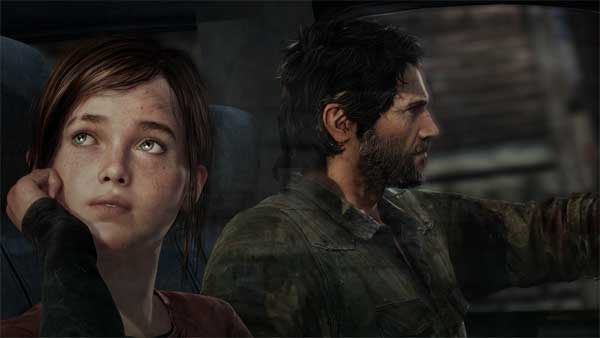The Last of Us and the Meaning of Life
I don’t have a PlayStation video game console but I follow video game news and one name that kept coming up for a long time was The Last of Us. Seeing as how I would not be able to play this game myself, I watched a play through of this game on YouTube. If you have a PlayStation console, you owe it to yourself to play this game.
Warning: Major SPOILERS ahead!
 The Last Of Us, Naughty Dog
The Last Of Us, Naughty DogSeriously, if you haven’t played this game stop reading right now and go check it out.
OK, if you are still reading, you must have played the game or won’t. Either way, in order to make my point, I have to explain a little about what happens in the game.
In the game a deadly fungal outbreak has caused anyone infected to turn into a cannibalistic monster. The infection is transmitted via a monster biting a non-infected human. At the beginning of the game, the infection is incurable and no one is known to be immune.
The game begins with setting up the story of the main character, Joel. Early in the game, he is introduced to the other main character, a teenage girl named Ellie.
Ellie, it turns out, has been bitten and has healed. She is immune! Joel is tasked with escorting Ellie to a group of scientists working on a cure or vaccine and Ellie’s immunity could be the break they have been looking for.
Joel and Ellie finally make it to the laboratory where Ellie is sedated so she can be examined. It is found that to produce the vaccine, part of Ellie’s brain would have to be extracted, which would end up killing her.
Joel, not wanting to let Ellie die, fights his way out of the hospital carrying the unconscious Ellie away from danger. The player isn’t given a choice about whether to protect Ellie or not. In order to finish the game, Ellie must be saved.
One must play, or at least watch the playthrough of the game to understand Joel’s desire to protect Ellie.
While Joel’s motivation to save Ellie may have been sentimental, I argue that it was also the objectively moral thing to do. Most people, I would imagine, would let Ellie be killed to create the vaccine. “The good of the many outweigh the good of the few.”
Suppose that vaccine cannot be synthesized and killing Ellie would produce enough vaccine only one other person. Would killing Ellie be justified? Most, if not all, people would say no. How about if Ellie’s death yielded enough vaccine to save two people? Perhaps more people would be willing to kill Ellie if it meant saving two people instead of just one.
The value of Ellie’s death goes up the more number of people it can save. More importantly, the value of her life goes down. How many people need be saved for Ellie’s death to outweigh her life?
Aside: It can be argued that the value of her life goes up alongside the value of her death, that is, had she not been born (given life) she wouldn’t have been able to save anyone and therefore, the more lives her death saves, the more valuable her life becomes. However, what does it say about someone born alongside Ellie who doesn’t have the immunity. Does their life worth less than Ellie’s?
I believe such a scenario creates a paradox, but only if we believe that life has some intrinsic meaning. Either everyone’s life has equal intrinsic value that is immutable, from which meaning can be derived, or it is changeable, opening all sorts of ethical quandaries about eugenics, slavery and class systems.
The only way to resolve this paradox is to admit that life has no inherent meaning and our existence on this planet is merely one of chance.
In case anyone is wondering, I did consider Ellie being given the choice to decide whether she would sacrifice herself to save others. My argument is based primarily on other people deciding whether Ellie gets to live or die. I will say, however, it would not be morally wrong for Ellie to refuse to sacrifice herself.
Another question that arises in such a scenario that people don’t often think about is, what would we be saving humanity for? What is the point of ending one life early so that another or even many others may live a little bit longer? People who believe in divinity don’t even have a clear answer for this. The non-believers don’t care.
What does it mean for life to be intrinsically meaningless? Is it possible to live a meaningful life in such a situation? So as not leave this post on a depressing note, I believe the answer is yes. The only meaning to (our) life is the one we ascribe for ourselves, that is, how we define ourselves by our beliefs and the actions we take to live up to those beliefs. I will elaborate on this in some future post.
This scenario is similar to the trolley problem. And I would imagine you can guess what my solution would be to that. If you have any thoughts or comments on this post, I’d love to read them in the comments below.

Add new comment